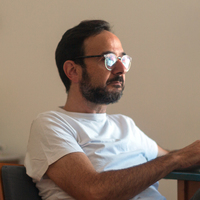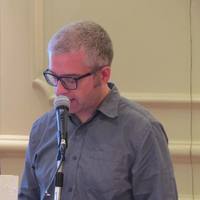
Gal Hertz
Phone: 00972502180777
less
Related Authors
Daniel D. Hutto
University of Wollongong
B. Harun Küçük
University of Pennsylvania
Vayos Liapis
Open University of Cyprus
Louis de Saussure
University of Neuchâtel
Armando Marques-Guedes
UNL - New University of Lisbon
Elena Loizidou
Birkbeck College, University of London
Julia Hell
University of Michigan
Brandon Woolf
New York University
Anna Tabaki
National & Kapodistrian University of Athens
Marco Sgarbi
Università Ca' Foscari Venezia
InterestsView All (8)










Uploads
Books by Gal Hertz
Papers by Gal Hertz